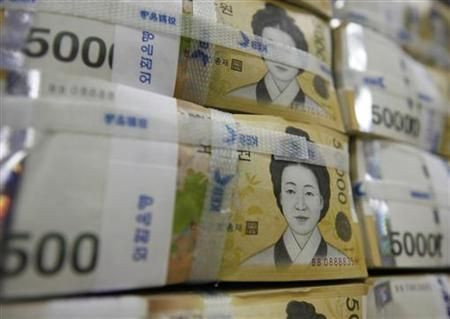South Korea’s Weakening Economy: Investors Call For More Policy Easing Measures

The Bank of Korea (BoK) Thursday announced its decision to cut the policy rate by 25 basis points to 2.75 percent but the market participants feel that additional stimulus measures are urgently needed to give a boost to the country's weakening economy.
The central bank has decided to cut the policy rate as it believes that the global growth will continue to disappoint. The central bank has noted that the growth in the U.S. has lost momentum and that the euro zone economy is contracting, with weaker exports in the major economies in turn bringing a slower growth in the emerging Asian economy this year.
“The committee expects the pace of global economic recovery to be very modest going forward, and judges the downside risks to growth to be large,” the central bank said. The BoK lowered its 2012 growth forecast to 2.7 percent.
Analysts sense that despite the European Central Bank's latest policy measures, the euro zone crisis is likely to escalate. Led by prolonged weakness in the euro zone, the global growth is expected to remain subdued not just for the remainder of 2012 but also in 2013.
Though the U.S. Fed launched a third round of quantitative easing last month, there is the understanding that the QE3 will have only a small impact on growth.
According to the revised data by the BoK last month, the country's economic growth slowed down to 0.3 percent in the second quarter of this year compared to that in the previous three months. The preliminary reading in July showed that South Korea's gross domestic product was up 0.4 percent in the second quarter. In the first quarter, the economy expanded 0.9 percent.
With South Korea's economy continuing to slow down, investors feel that the BoK will be under pressure to announce more monetary easing measures, including a further cut.
Last month, the BoK reported that South Korean manufacturing BSI Index for September was at 75. A reading below 100 is an indication that the number of firms that see business conditions deteriorating is more than that of those that see an improvement.
According to the data released last month by the National Statistical Office, the industrial production in South Korea saw a decline of 1.6 percent in July, down from 0.6 percent decrease in June.
Market players sense that monetary policy should be loosened again sooner rather than later though the BoK has shown a preference for moving slowly. With South Korea having an inflation rate of 2 percent in September, which is below the central bank's 3.0 percent target limit, there should be room for further policy loosening.
"Given that local and global conditions have been weak over the past few months and the inflation being in the central bank's target range we expect another cut in the interest rate this year," Capital Economics said in a note.
© Copyright IBTimes 2024. All rights reserved.











